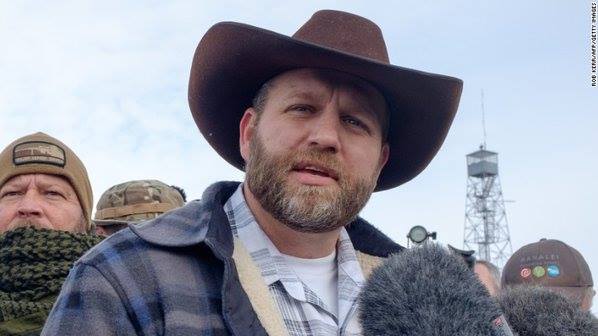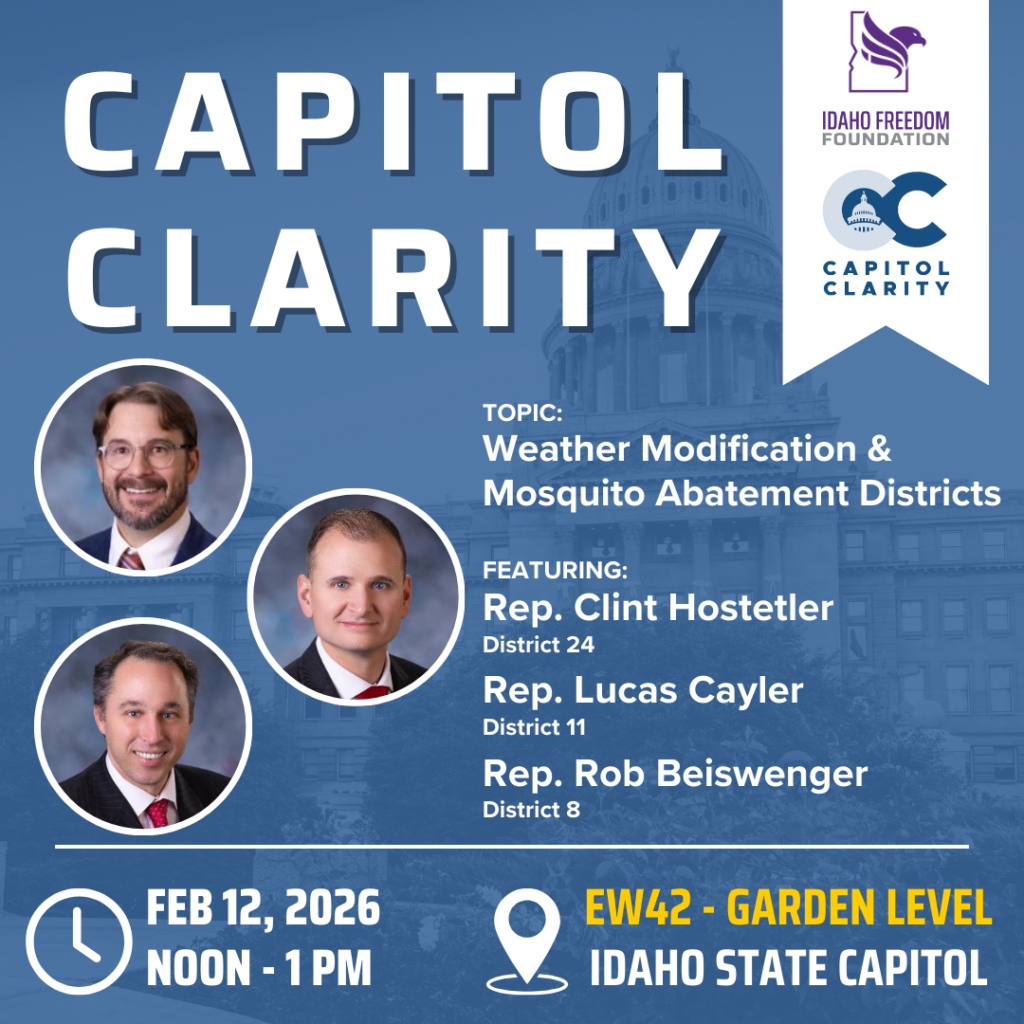


By Clint Siegner
Oregon Gov. Kate Brown sat in her office January 20th and drafted a letter to the U.S. Attorney General and the Director of the FBI. She wrote, negotiations with the “radicals”occupying the Malheur National Wildlife Refuge have failed and insisted on a “swift resolution to this matter.” Harney County Judge Steve Grasty made similar demands as the protest at the refuge continued. On January 26th, they got what they asked for.
Authorities, including the FBI, ambushed and arrested Ammon Bundy, along with a number of other protesters on their way to a public meeting in neighboring Grant County. They shot LaVoy
Finicum dead. Witnesses say he was not holding a weapon.
Awful. Grasty and Brown were certainly aware of what might happen should the FBI decide negotiations had failed. Few have forgotten the standoffs at Waco, Texas, and Ruby Ridge, Idaho, where “swift” federal action meant people died. In many cases indiscriminately. It’s ironic, but the demands of the local judge and the governor go a long way to making the refuge protesters’ case for them. Blind devotion to federal authority is terribly dangerous to lives and to liberty.
The protest in Harney County will certainly not be the last when it comes to federal overreach. Here is hoping people find reason next time, before demanding dangerous federal intervention.
To that end, it is time to dispel a few myths about what is going on.
Myth #1: The armed people at the refuge were threatening violence.
You wouldn’t know it by watching TV news, or reading Brown’s hysteric letter, but the Malheur Refuge wasn’t an armed compound full of violent people. To find that, you needed to
drive by the airport in Burns, Ore., where federal agents staged exercises with military vehicles and weapons behind fences and a floodlit perimeter.
Yes, the occupants at the refuge were armed and they reserved the right to defend themselves. The difference between them and any other citizen who claims their Second Amendment right is that they did so from inside public, and previously unoccupied, federal buildings. They got very little credit for doing virtually everything possible to minimize threats and interruptions to the local community. They could scarcely have chosen a more remote location and they moved in when they knew not a soul was around.
The facility was operated more like an open house than a compound. Locals could, and did, pour in there to see what the standoff was all about. Many were sympathetic enough to bring
food and supplies with them. The protesters invited in anyone who wanted to show up and have an honest conversation.
For Oregonians, the much larger threat is their high officials who write letters urging the feds to take “swift” action.
Myth # 2: Only nutty, right-wing militias from outside would stoop to such tactics.
The system is broken. Petitioning Congress, where the vast majority of representatives cater to entirely different interests, or using the court system, where unaccountable federal judges define
the limits (if any) of federal power, is not working. So people should expect more unconventional means when it comes to protest.
Brown and Grasty must know the protest in Harney County included a number of state and local residents. There were plenty of community people sympathetic enough with the protest to bring food and supplies. The storeroom literally overflowed, and locally grown beef was kept frozen in a snow bank outside for lack of adequate freezer space.
If Gov. Brown and Judge Grasty had visited the refuge, they would have found people there ready to talk calmly, rationally and intelligently about the issues. Tragically, they felt there had been too much talking already. Now one of the most calm and rational leaders in the group is dead.
Federal supremacists like to marginalize anyone advocating for local control, calling them radical and dangerous. They want you to believe these people are motivated by crazy ideology and sprang out of nowhere.
They don’t talk much about history. The issues on display in Harney County have been simmering for decades. The Sagebrush Rebellion made headlines in the 1970s and ‘80s. There
is an entire movement of smart folks stretching all the way back to the nation’s founding who question the legitimacy of federal control over public lands.
Given just how economically devastating BLM and Forest Service management has been for rural communities all over Oregon, Brown and Grasty should be asking some questions too.
Myth #3: Anyone opposed to federal control of lands hates conservation.
Brown and Grasty share the same irrational philosophy advanced by many of the prominent national conservation organizations: The best way to protect public lands is to put unelected bureaucrats, headquartered thousands of miles away, in charge. That position is hard to fathom. So many conservationists see value in “buying local” when it comes to food, services, you name it. Local is great, except when it comes to government?
It is a bit reminiscent of war. The propaganda department is busy dehumanizing the enemy, branding ranchers and loggers as if they are all foolish and blinded by greed. That same propaganda mill characterizes local residents as if they are too inept to stand up to them and govern responsibly.
The truth is, there are wise people who care for the environment living right there in Harney County. Among them are cattle ranchers and forestry professionals. Many of these folks simply believe land-management decision making would be better if it was done much closer to home.
Myth #4: Ranchers just want a free ride
It would be far more accurate to say ranchers want fair, not free. Many western ranches have a federal grazing permit attached to them. This permit has economic value, similar to the
medallions that taxicab operators buy in order to run their business. Most of the time ranchers acquire the grazing permit when they buy a ranch, though they can buy and sell them independently as well. The permit’s value is significant. The point is: Cattlemen pay big money up front for access to the grass.
On top of that, they pay grazing fees annually. Some argue the fees are unfairly set below the market rate for renting private pasture. But this argument doesn’t account for ranchers providing their own veterinary services, maintaining fences and water systems, delivering salt and other feed supplements and moving their own cattle from place to place. Together with the large
upfront cost of purchasing the permit, these are key differences between renting public versus private pasture. In any event, practically no rancher is complaining about the dollars involved.
What ranchers object to is paying federal agencies who have a long history of treating them like tenant farmers and disrespecting legitimate property rights. Most support the idea of paying fees
locally, and getting more accountable range management in return.
Myth #5 : The federal government’s prerogative to own and manage the majority of lands in Oregon is beyond question.
Now we get to the crux of the matter. Everyone raised in the U.S. is taught that federal laws are supreme. What’s more, we learn the U.S. Supreme Court is the ultimate arbiter on whether or not
a law is constitutional. When nine (or fewer) judges, who practically no one has ever met, issue a ruling the matter is settled once and for all. Those who argue for state and local control of lands
had their day in court. They lost. Case closed.
Not so fast. What we were all taught is nonsense. No surprise given school curriculums are largely designed by federal agencies. In fact, the States (capital S) are sovereign. The federal government, including the nine almost wholly unaccountable justices serving on the high court, are not the supreme authority. State governments have the power, the sacred duty to nullify unconstitutional laws and defend the liberty of citizens.
The kicker here is that Oregon recently snubbed the federal government’s edicts in a separate arena. Last year, Oregon legalized marijuana for recreational use, despite federal law to the contrary. Though Brown didn’t sign that into law, she certainly has not pleaded for federal authorities to take swift action against pot dispensaries.
To the contrary, Brown and the people of Oregon determined Oregon’s authority trumps federal dictates and acted, and continue to act, accordingly.
What a “radical.” May Brown and Grasty find that spirit of independence before calling on the FBI to crush the next protest.



